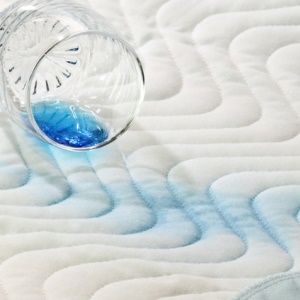
Incontinence is the loss of bladder or bowel control resulting in loss of urine or faeces.
Although difficulty controlling the bladder or the bowel can occur at any age, it is more common in older adults. Incontinence can be a distressing and embarrassing condition. It can be inconvenient and have a negative impact on one’s social, sexual and working life, and can also affect one's family life.
Incontinence is a common condition – it is experienced by 25% of women and 15% of men at some stage during their lives.
There are degrees of incontinence, from a light, often temporary situation to heavy incontinence where people have little or no control over their physiological functions.
'No man's an island'
The degree to which a person is affected by incontinence will determine how much care and assistance they need. Some may be relatively independent, often with the help of incontinence products, whereas others are so badly affected that they need to be moved to a nursing home.
No man is an island, as the saying goes, and the lives of all of us impact on the lives of other people, especially close friends and family. Physical ailments like incontinence can have a profound effect on those we live with, with partners usually most affected.
Ways to support an incontinence sufferer
If you’re caring for a partner or someone else in your family with incontinence, there are certain things you can do to help both of you cope with the situation:
1. Understand the condition
The first step in coping with a medical condition is to understand it. Learn about the causes and symptoms of incontinence, and how it affects a patient on a day-to-day basis.
It's not necessary to become an expert, just knowing the basics is enough to enable you to respond sensitively and give the most appropriate practical help.
Weigh in with a healthcare provider to understand your loved one's situation and for practical tips and guidance on how to deal with it.
2. Understand the psychological impact
Losing control of one's bodily functions is a stressful health issue and will have a strong psychological effect on your loved one. Anxiety, depression and stress are common reactions. People with incontinence issues might be afraid to leave the house in case of an accident, or worry excessively about odours.
Be supportive by being aware of their public anxiety. Reassure them that your are there to help them with any situation. Be empathetic with the stress they're experiencing and remain calm and patient.
3. Be prepared!
There are many effective products on the market to help manage mild, moderate and even severe incontinence. Protective pads and garments are the most common products and are available in a range of sizes, styles and absorbency levels. Examples are absorbent pads, incontinence panties and briefs, disposable undergarments and plastic pants that fit over regular underwear.
When leaving your home, pack everything you might need, such as a change of underwear, wipes and gloves, as well as plastic bags for soiled garments and anything else that needs to be disposed of.
When going to a shopping centre, for example, find out in advance where the restrooms are situated to speed things up in case of an emergency. Wearing clothing that can easily be removed, i.e. with velcro fasteners or elastic waistbands, is also a good practical measure.
4. Manage your loved one's diet
Although diet cannot cure incontinence, it can affect voiding patterns, and keeping a diary may help you to find any connection between what your loved one consumes and their incontinence.
Faecal incontinence caused by constipation or haemorrhoids can be improved by eating more fibre and increasing one's fluid intake. If, however, it is caused by diarrhoea, you should avoid triggers like alcohol, coffee, some dairy products, fatty and greasy foods, some fruits, spicy foods and specific sweeteners.
Bladder control can be affected by a number of substances, some of the most common being spicy foods, alcoholic beverages, carbonated beverages, coffee, tea, citrus juice and fruits.
5. Be flexible!
You never know when bladders and bowels are going to play up, so even the best preparation may not be enough to cope with incontinence. Sometimes plans need to be adapted quickly if, for example, a public restroom is not working or if you are stuck in traffic.
Alternative plans and backup activities can make outings more viable and relaxing, and reduce any guilt the person may feel for ruining the day. Doing fun things at home can avoid the stress of negotiating unfamiliar territory.
6. Maintain good hygiene
When dealing with "accidents" or just on a day-to-day basis it is advisable to be as hygienic as possible and suggestions include:
- Wear disposable gloves when you help the person.
- Wash the person’s skin afterwards with warm water. Apply a barrier cream to prevent irritation.
- Wash your hands with soap and water afterwards, even when using gloves.
- Dispose of used pads and gloves in an appropriate way. Do not flush disposable underwear, pads or gloves down the toilet.
7. Know when to see the doctor
According to Better Health Channel, it is advisable to seek medical attention in events such as:
- Inability to urinate
- Sudden bed wetting or loss of urinary control
- Chronic constipation
- Diarrhoea lasting longer than 24 hours
- A skin rash that doesn’t respond to good hygiene and barrier creams
- Strong negative emotions such as anger, stress or depression
Image credit: iStock




 Publications
Publications
 Partners
Partners










